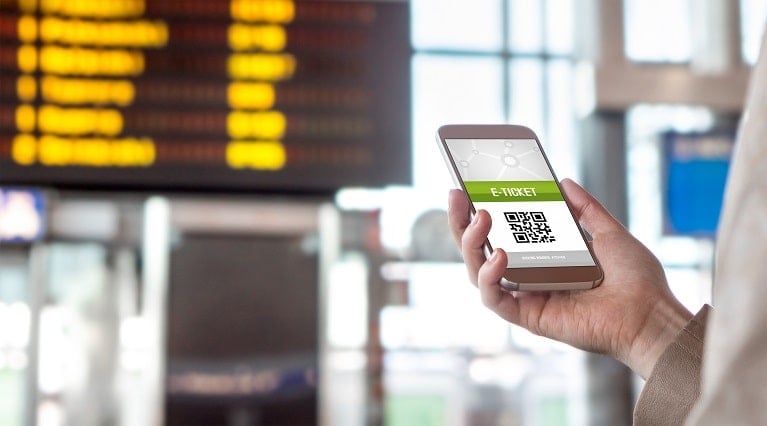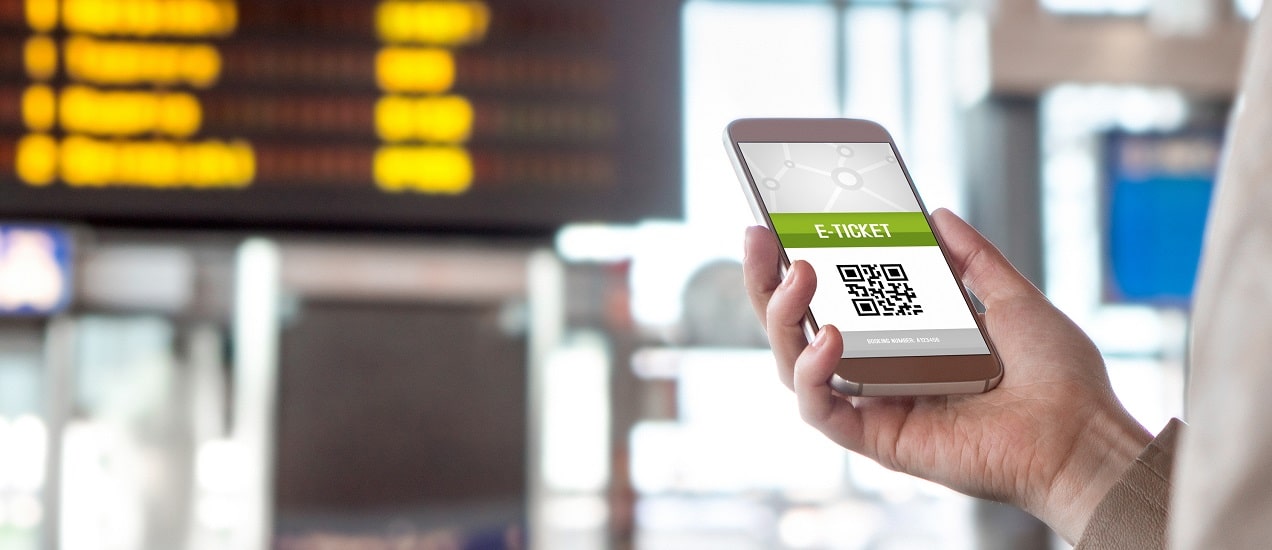As is true for every industry and service, technology has disrupted the ticketing domain as well. Move over, paper-based tickets, 'smart' tickets are here! Smart ticketing technology has evolved significantly, emerging as a better alternative to traditional paper-based ticketing. Access to innovative technology is driving customer behavior and expectations.
The increased adoption of mobile devices has also created the need for modern-day cities to be more connected, smart, and secure. This is perceptible in how industries are gradually migrating to the online space, given its convenience and accessibility.
Today, customers want a seamless travel experience without any hassle of queuing up for a ticket. This is where smart ticketing technology holds all the aces. So, what exactly is smart ticketing and how does it make travel so seamless? Let's find out!
What is smart ticketing?
Smart ticketing is this open-loop concept that allows passengers to use debit or credit cards, smartphones, or other mobile devices with payment functionalities. In today's online, paperless world, it reduces the need to carry an additional card or ticket. With just a tap on the platform sensors on their devices, customers can now avail a more seamless travel experience. These embedded technologies facilitate transactions on the go. Loosely translated to the pay-as-you-go method, they usher in more inclination and eventual adoption.
- Available in various forms, smart tickets can either be dispensed as smart cards from machines or can be bought directly through smartphone channels as virtual tickets (eliminating the physical component).
- Backed by embedded NFC (Near Field Communication) and integrated with RFID chips, contactless payment applications allow mass transit transactions. Passengers can use NFC-powered payments apps to circumvent physical barriers and make payments on the move.
Today's global cashless society, fuelled even more by the COVID-19 crisis, has unleashed a paradigm shift across the world, as has been the case with transit networks.
What's behind the transition towards smart ticketing?
Mobility is a fundamental facet of successful economic growth and is increasingly becoming a priority for potential investments. While infrastructure is critical, operators must focus on increasing the footfall on public transport. But how? By adopting measures that make public transport more attractive.
The smart ticketing transition has kickstarted a revolution in the public transport domain. Given this shift in perspective, it is anticipated that paper tickets will soon be dead and gone. Smart ticketing allows storing tickets on electronic microchips embedded in smart media, thus allowing customers to complete end-to-end journeys without needing to visit any ticket counter. Perhaps the main driver for smart ticketing lies in the power of mobile commerce. It leverages the pervasive smartphone (as the payment, access, and information device) on its own or as linked to a contactless card.
Initially started in the railways, smart ticketing is now steadily but surely gaining traction across broader transit networks that share multiple services. Advocating the 'anytime, anywhere' approach, it empowers customers to leverage their devices to facilitate the right travel experiences. While the government is already pressing for greater use of public transport, smart ticketing further promotes this transition, reducing the pressure on constrained road capacities.
Although the full potential of smart ticketing is still evolving drastically, it is imperative to dive into its holistic benefits beyond the obvious merits of convenience and price competitiveness.
What are the benefits of smart ticketing?
From a customer's point of view, smart ticketing provides the following advantages:
- streamlines travel processes
- curbs friction at physical ticket counters
- optimizes time by reducing waiting time and queues during peak hours
- offers flexible payment options
- provides an added layer of security, making the replication and revoking process easier than its paper-based counterparts.
From a transport operators' point of view, a smart ticketing revolution:
- reduces physical infrastructure and maintenance costs of conventional ticket stations.
- gets rid of legacy platforms and adds creative scope for constant enhancements.
- helps tailor products for customer segments by deriving real-time insights from passenger-travel data. This further leads to increased ridership and service utilization.
As part of the ongoing customer intelligence journey, the relevant agencies can also create scope for:
- route updates
- subsidized fare structures
- flexible season deals
- loyalty programs through a seamless and personalized real-time communication channel
From a global perspective, smart ticketing brings an eco-friendly impact that avoids unnecessary wastage of paper. All in all, smart ticketing is set to pave the way for the mobility of the future. Its versatile benefits will also work as an instrumental force in the global transition towards smart cities.
Smart ticketing - market overview
According to a recent Markets and Markets report, the global smart ticketing market size is expected to grow from USD 7.2 billion in 2020 to USD 16.2 billion by 2026 at a CAGR of 14.5% during the predicted period.
The smart ticketing technology is not just limited to transportation but has also shown great value in sports, entertainment, and tourism. Smart tickets have emerged as a substitute for traditional paper-based tickets due to the pandemic-driven shift towards contactless and digitized payment systems. The smart ticketing market is currently moderately concentrated. However, more global players are expected to enter this market as more government initiatives support this technology.
In a nutshell
Smart ticketing technology puts the passenger above everything else. It ensures that passengers have greater control and flexibility while purchasing tickets and availing cost-effective fares. The contactless smart card is also gaining traction due to its cool features like ease-of-use, quick onboarding, increased convenience, affordable transit, etc.
Nagarro – Smart ticketing is powered by an integrated mobility platform that can be an able partner at every stage of the passenger journey. Apart from trip planning, reservations, and ticket services for multi-modal transportation, the platform caters to a seamless after-sales and payment validation experience. With the ability to deploy this in less than - hold your breath - 6 months, Nagarro – Smart ticketing also drastically improves utilization and accelerates your time-to-market.
Looking for a partner-in-journey? Let's discuss! Grab your (smart) ticket to check this out further and reach out to us.





